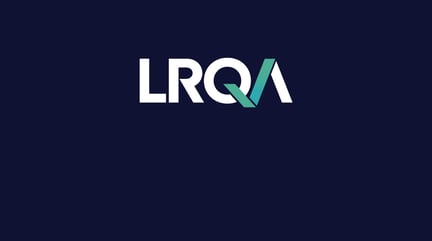Introduction
The Principles of Information Management course provides the detail requirements of the ISO 19650 approach and is intended for those undertaking the various industry functions that support the information management workflow. From client organisations, lead designers to constructors or task team members, it is important to understand not only what your specific role and responsibility contrails, but that of those you collaborate with.
The ISO 19650 series of standards define the high-level requirements for delivering BIM as information management. However, BIM is a collaborative exercise and information management is only one aspect of that. This Principles of BIM as Information Management courses not only provides the detail to implementing the ISO 19650 series of standards, but also puts this into the context of the other existing and developing International and European standard, as well as best practice on how to implement this for better outcomes.
Who should attend?
This training course is suitable for all AEC Design, Construction and facilities management professionals including:
- Architects
- Constructors
- Information managers
- Asset managers
- Designers
- Local authorities
- BIM Coordinators
- Developers
- Maintenance contractors
- BIM Manager
- Education Establishments
- Manufacturers
- Central government
- Engineers
- Project managers
- Client Organisations
- Facility managers
- Quantity Surveyors
Key learning objectives
The course comprises 7 units, each with identified learning objectives as follows:
Unit 1: Requirements and Responses
At the end of the Unit you will be able to:
- Describe the key components of the ISO 19650 resources and content;
- Explain the three key groupings of resources and content;
- Describe the benefits of information requirements;
- Express the key components of the information requirements;
- Express the key components of the pre appointment or draft implementation plan; and
- Express the key components of the implementation plan.
Unit 2: Information Management functions
At the end of the Unit you will be able to:
- Express the Information Management parties, and associated activities.
- Explain, why Information Management functions, are required.
- Define, Employers Information Management roles, and responsibilities.
- Define, Lead Designer or Contractors, Information Management roles, and responsibilities.
- Define, Task team Information Management roles, and responsibilities. And,
- Express, the implications of Information Management roles, in working methods.
Unit 3: Assessment, Procurement, and Appointment
At the end of the Unit you will be able to:
- Identify, the information life cycle, and associated activities.
- Identify, the key tasks associated with, assessment and need.
- Identify, the key tasks associated with, an invitation to tender.
- Identify, the key tasks associated with, a tender response, and,
- Identify, the key tasks associated with, an appointment.
Unit 4: Mobilization, Production and Close-out
- At the end of the Unit you will be able to:
- Identify the tasks associated with mobilization;
- Identify the tasks associated with the collaborative production of information.;
- Express the key considerations, when producing information
- Identify the key tasks, associated with information model delivery; and
- Describe the relationship, between verification, validation, authorization, and acceptance.
Unit 5: Components of the Common Data Environment
At the end of the Unit you will be able to:
- Describe, the purpose of the Common Data Environment;
- Express, the CDE functional sections and gateways;
- Recognize, the requirements of the expanded CDE process;
- Recognize, the requirements for standardised nomenclature;
- Recognize, the requirements for project and document metadata; and
- Recognize, the functional requirements of the solutions that support the CDE process.
Unit 6: Standards, Methods, and Procedures
At the end of the Unit you will be able to:
- Recognise, the need for standards at different levels, to support collaborative working;
- Express, the methods and procedures, to enable document delivery, in a collaborative environment;
- Identify, the key model and document standards identified, to aid model and document delivery;
- Identify, the collaborative working standards, methods, and procedures;
- Recognize, the requirements for standardised nomenclature, project and document metadata; and
- Recognize, the SMPs required to deliver structured information.
Unit 7: OpenBIM
At the end of the Unit you will be able to:
- Describe, what buildingSMART is, and what it represents;
- Define, openBIM and its benefits, compared to using proprietary solutions;
- Express, what IFC is, and its benefits;
- Identify, what MVDs are, and their benefits;
- Express, what IDMs are, and their benefits;
- Identify, what the IFD is, and its benefits;
- Express, what BCF is, and its benefits; and
- Express what IDS is, and its benefits.
Course preparation
Complete the Essentials of BIM Course and successfully pass the multiple-choice examination.
What's included?
- 2 days of training, either delivered virtually or in the classroom.
- Lesson quizzes
- Multiple choice examination and certificate of attendance.
- Multiple-choice examination with Pass required for acceptance on the LRQA BIM Individual Certification Scheme.
Course delivery
- eLearning
- Public
- On-site
- Webinar
Course length
2-day Instructor led or eLearning (15 Hours)
Training from LRQA
With LRQA, you can access a wide range of courses to help you further your career and bring improvements to the management systems in your organisation. With many learning styles to choose from, our training courses can help you develop and reach your next level. Find out more about Ascend Training Courses from LRQA.


